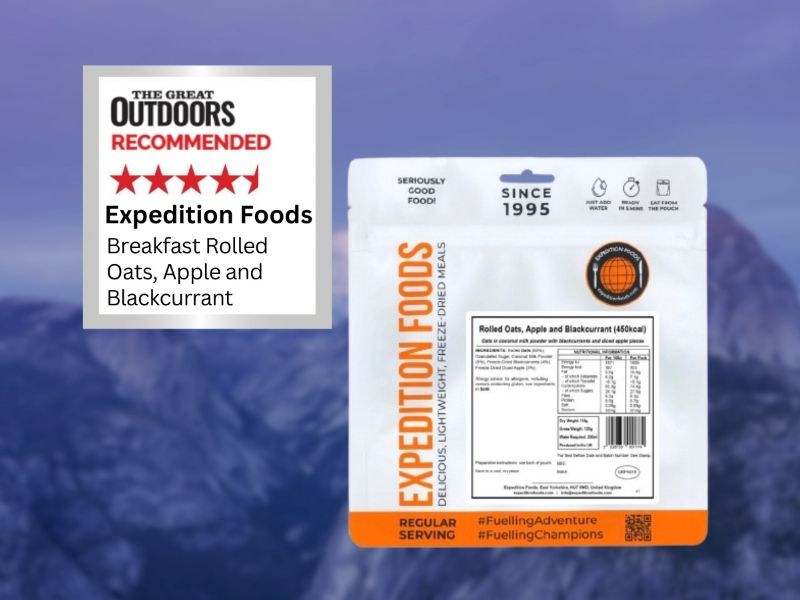-
Shop All
-
Ration Packs
-
Special Diets
-
Snacks, Drinks & Accessories
- About Us
DO 1 THING – ROWING FROM CAPE TOWN TO RIO TO HELP SAVE THE PLANET
August 09, 2017
We caught up with South African Wayne Robertson who, in early 2017, rowed approximately 7,600 kilometres from Cape Town to Rio de Janeiro with his partner Braam Malherbe to raise awareness for the DOT Challenge.
1. What’s your occupation?
I am a yacht builder/designer and composites specialist. I have run my own company, Wayne Robertson Yachts, in Cape Town since 2006. I have been sailing the oceans for many years and am a qualified skipper.
2. What’s your sporting background?
I am an extreme endurance athlete with my main discipline in long-distance off-road mountain biking events. I am a big wave surfer and have been surfing for +35 years. I also practiced Shukokai martial arts for 12 years. For the Zen…
3. When did you get involved in ocean rowing?
One week before we left Cape Town!
4. How did you get involved with the Cape2Rio row?
As a yacht builder I offered to help get the boat ready for the expedition. I am a passionate conservationist with a particular connection to the sea and the environmental challenges that our oceans face. I bought into the ethos of the challenge immediately.

5. What training did you do for the row?
I trained with Guy Bisco, a UK rowing coach for four hours only. Three of those hours were at sea. I managed to grasp the rowing techniques fairly quickly and found many parallels with martial arts. Posture, conservation of movement, mind body connection etc. - all the same.
6. What gear did you take with you on the row?
We had our normal offshore sailing gear for the real south Atlantic legs, but as the water warmed up, we eventually rowed as naked as possible. Wet clothes just don’t dry with sea water, so we would row in specialised rowing shorts and rash vests for sun protection.
7. What were the high and low points of the row?
The high points were feeding our pet fish who stayed with us for 4 to 5 weeks from mid-Atlantic. Raymond was a remora who helped keep our hull clean, and Spot was a chubb mackerel who just ate everything. We fed them twice a day while swimming.
The lowest point was when our backup water maker pump broke. We had 4.5 litres of water on board and had 1200Nm to the Brazilian coast. There was never any chance of rescue and we were completely un-assisted.

8. Tell us about your nutrition.
The bulk (+90%) of our food was supplied by Expedition Foods. The rest was basically comfort food such as sweets, nuts and dried fruit etc. We would ration our comfort food to when times were tough. We actually over catered for our needs so, generally speaking, we ate porridge or (mixed vegetable and egg shared) for breakfast and one main meal, like a pasta, spaghetti or noodle-type food, in the evening. We would eat a chocolate pudding or rice pudding late afternoon if needed and we were never hungry on that. We also ate nuts, mixed dried fruit and Goji berries as comfort food when we were miserable.
9. Did you heat water for the meals or did you use cold water?
Yes, we used hot water 80% of the time, except when our spare our spare manual water maker pump broke. We could not run the main electric water maker when our power ran out.
10. How about "wet meals"? Did you bring any?
Yes, at least 30% of our food was wet meals. The wet food is what really saved us from starving when the water pump broke. We had 48 days of no sun; not good for solar powered systems...
11. And what did you drink while rowing? Did you have any electrolyte mix?
Yes, we mixed electrolytes with 2 litres of water a day which we shared. The on-board water maker makes pure H20 water from sea water which does not contain the minerals and nutrients required for our metabolism.
12. What were the dynamics like between you and Braam?
We never had a single argument in 92 days. We agreed in the beginning that we would discuss any issues that bothered us, no matter how big or small. We stuck to this rule emphatically and it worked.
13. Did you ever think you would not make it?
No, not making it was never an option. There was no chance of rescue. We had to keep moving forward or die trying.
14. Would you do anything differently next time?
I would pack a spare toothbrush. I lost mine over the side one morning as my hands could not grip anything properly. I had to share Braam’s for a month or two.
15. Let’s talk about equipment. Was there anything that turned out to be worthless and/or invaluable?
The most worthless pieces of gear were the wind instrument and our cigarette chargers. The chargers all rusted up and failed. Eventually we couldn’t charge anything, including handsets and laptops.
16. What was the scariest moment of the row?
We got caught in many storms, and got rolled and capsized violently many more times in 8-meter breaking waves, but the scariest thing was nearly being hit by super tankers and cargo vessels. We nearly got killed 27 times, always at night. All our systems were solar powered and we had 48 days of no sun. We were not able to charge our batteries to full capacity and still run our Navionics, AIS and water maker daily. The situation required extreme management of power resources. We rowed non-stop in two-hour shifts each, but as we could not run our navigation and traffic warning systems, we had to keep watch as well. Sleep deprivation was by far our biggest challenge, especially when having to make calculated decisions when navigating in shipping lanes. Also, in the two hours that one of us should have been sleeping, most of that time was spent making water and food instead. Personal hygiene was also very important and we could not risk any infection or injury to anything. We had to look after each other at all times.
17. After 92 days at sea what did it feel like when you reached Rio?
It was just incredible! We were greeted by a flotilla of boats and press. We were all over national TV networks and front page in every newspaper.

18. How has your life changed since the Cape2 Rio row?
I am now even more driven to help make a change in the way we treat our planet. Our oceans are under huge threat from climate change, over fishing and plastic waste.
19. So what’s next for you?
I plan on talking to as many people as possible and to act as a catalyst for change in the way we as humans think and act. Our planet is in trouble and we don’t have a plan(et) B.
20. You’ve completed a truly remarkable row. What do you think is the key to success in ocean rowing?
Obviously a good understanding of one’s body and mind connection, and what your abilities are. Injury prevention is key and knowing when you can or should not push any harder. But food and nutrition make the day. Without the right food, your body would not perform at its best and the result would be fatigue and injury. Also, as social creatures, mealtimes are always the highlight of the day. And when the food is good, it makes it even more special.
You can find out more about the DOT Challenge by visiting their website here: http://dotchallenge.org/

Also in Stories

Fuelling a Marathon des Sables Win: Anna Comet Pascua x Expedition Foods
January 27, 2026
Discover how a Marathon des Sables champion fuelled her victory with Expedition Foods. In this in‑depth interview, she shares her nutrition strategy, favourite freeze‑dried meals, calorie planning, and insights into multi‑day racing and motherhood.

Eat, Paddle, Sleep, Repeat: Life on the Yukon 1000
November 06, 2025
Firsthand account of completing the Yukon 1000 in 7 days; what we ate, packed, and learned about food, sleep, and self‑reliance on the river.

Expedition Foods Breakfast Earns Praise from The Great Outdoors Magazine!
September 29, 2025
We’re proud to have received a glowing review for our plant-based breakfast, Rolled Oats with Apple and Blackcurrant, that’s not only nutritious and delicious but also mindful of dietary needs and environmental impact.

